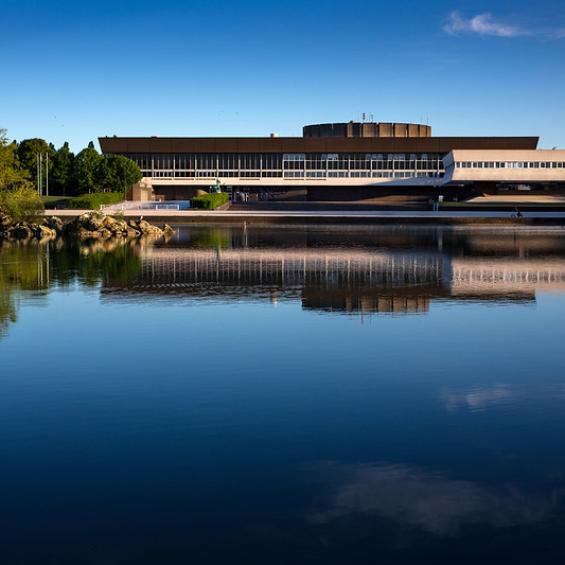Presentation
.png)
IDCS unit service
IDCS, which stands for Infrastructure - Data - Scientific Computing, is a dedicated service unit at École Polytechnique. It provides the scientific and teaching community at École Polytechnique and the Institut Polytechnique de Paris (IP Paris) with the hardware, software, and human resources needed for high-performance computing (HPC), data science, artificial intelligence (AI), and machine learning.
Historic
The project to create a mesocenter for computing at École Polytechnique came about following an initial successful experiment in 2014 involving the CMAP, CMLS, CPHT, and then LPP (in 2016) laboratories sharing the Hopper intensive computing cluster (800 cores).
This mesocenter was structured as a separate service unit on May 14, 2020, under the aegis of École Polytechnique's Research Department.
Mission
Research and training in scientific computing and data science rely on costly and complex IT infrastructures (high-performance computing, cloud, hyper-capacitive storage, hyper-performance storage).
The human and financial investment required to set up and administer these infrastructures means that efforts must be pooled between laboratories.
The IDCS unit's mission is to set up and maintain a high-level technical foundation (IT, software, and hardware infrastructure) to support structural projects involving one or more laboratories and including research-based training activities.
The unit is structured around several areas of expertise that draw on cross-functional resources.
“Computing and Data” Ecosystem
Regional (Southern Ile-de-France)
Computing and data stakeholders located in the "Plateau-de-Saclay" or Paris-Saclay science and technology cluster, including the Institut Polytechnique de Paris (IP Paris), Paris-Saclay University (UPSaclay), and the CNRS Institute for the Development of Scientific Computing Resources (IDRIS), have identified cross-cutting needs among the scientific and academic communities of the "Plateau-de-Saclay". The necessary technical and human resources can no longer be financed and managed by a single institution. It is therefore essential to pool efforts in order to maintain the regional competitive advantage of the Plateau's academic institutions, facilitate interdisciplinary scientific collaboration, and respond to environmental challenges (reduction of redundant equipment and energy efficiency).
IDCS is strongly involved in this ecosystem and is actively participating in the creation of a shared digital platform between these three institutions, called the "Centre de Calcul du Plateau-de-Saclay" (CCDPS). This platform aims to offer services including:
- IT resource hosting,
- data calculation and processing,
- and scientific data storage.

National
The CCDPS digital platform is fully in line with the transition strategy of the Ministry of Education and Research, through its Directorate-General for Research and Innovation (DGRI), to streamline digital infrastructure through certified regional data center structures and federated infrastructure.
The challenges of this strategy, as defined by the DGRI's Digital Services and Infrastructure Steering Committee (CoSIN), are as follows:
- Controlling energy expenditure related to the deployment of digital services.
- Compliance with standards and consideration of regulatory changes and quality requirements.
- Consideration of hosting and cybersecurity requirements.
- Sustainability and consideration of increasing needs.
- Maintaining state-of-the-art solutions and skills.



